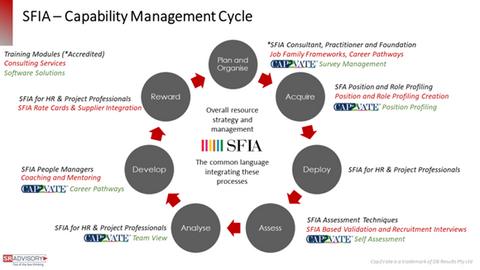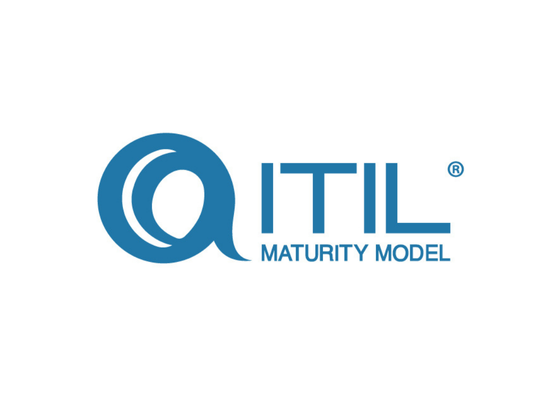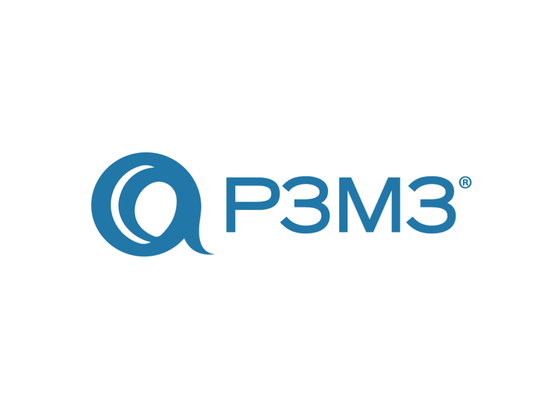What is SFIA®?
SFIA (Skills Framework for the Information Age) is the global skills and competency framework for the digital world. It was launched in 2000 and the current version SFIA 8 was published in 2021. It is published and maintained by the not-for-profit SFIA Foundation with the support and input from professionals across the world.
Why do we need the SFIA Framework?
SFIA owes its existence to an IT talent shortage and is a widely recognised need to address this effectively. The industry has been plagued with skills shortages and an inability to accurately assess the real skill levels of both existing staff and potential candidates for vacant positions. SFIA provides a reference framework for dealing with this situation and provides benefits for both the individual and organisations. SFIA is a framework within which we can view a set of ICT-related skills and competencies. At it's heart, the frameworks has:
- the degree of autonomy typically granted to a staff resource at that level;
- the level and scope of influence that a person at that level usually has;
- the degree of work complexity typically performed at that level;
- typical business skills exhibited; and
- the scope and depth of knowledge displayed
The descriptors associated with each responsibility level are generic in nature because they can be applied across all skills in the framework. While the purpose and intent of the seven levels has not changed significantly since SFIA was first published, they are reviewed and updated as part of the overall ongoing evolution of SFIA.
SFIA Skills
Each skill in SFIA follows the same format:
| Skill Name | The name used for reference purposes |
| Skill Code | A 4-character code used as a short reference. This code may sometimes seem to bear little relation to the skill name and this is usually due to revisions during the evolution of SFIA where a decision has been made to rename and/or restructure a skill but its code has remained the same. |
| Skill Description | A brief definition of the skill without any reference to the levels at which it may be practiced. |
| Guidance notes | A broader description and examples to clarify application of the skill along with context for interpreting level descriptions. Any examples are intended as descriptive not prescriptive. |
| Level descriptions | Definitions of the skill for each level at which it is practiced. The phrasing facilitates their use as professional competencies. |
As an individual it can help me
- Identify the skills that I have and assess the degree of proficiency that I can demonstrate in those skills
- Identify the typical skills that are required for typical roles and career pathways in the ICT field and work out any skills gaps that I need to address if I want to advance in my career
- Provide evidence of my skills to prospective employers
Benefits for an organisation
The SFIA framework is free to use for most individuals and organisations.
As an organisation it can help me:
- Identify the skills that are already present in my staff resources and ensure that they are being effectively utilised
- Develop standard role descriptions that can be used to:
- Assist with candidate shortlisting and selection during recruitment
- Identify suitable project resources
- Design career pathways for staff to facilitate staff retention
- Undertake skills gap analyses to enable planning for future strategic initiatives
- Objectively appraise staff performance and assist with the formulation and monitoring of develop plans that are tailored to the needs of both the individual and the organisation
- Map roles with responsibility levels to ensure that reward and remuneration schemes remain competitive with industry standards.
SFIA Consulting & Training Services
Our SFIA based Consulting and Training Services cover the entire Capability Management Cycle.

Consultant Level Training
Consultant Level Training
Practitioner Level Training
This accredited ½ day course provides a basic understanding of SFIA, what it is and what it is not. Takes the audience through the SFIA categories and subcategories, and how they are used in real life. Using practical examples, demonstrates how to determine skills within a particular situation or assignment, and determine the appropriate level of the skill for a role.
Foundation Level Training
Provides a basic understanding of SFIA, what it is and what it is not. Takes the audience through the SFIA categories and subcategories, and how they are used in real life.
SFIA Assessment Techniques & Training
This one-day training course shows attendees how to assess professional skills against the SFIA framework, walking through the different styles of assessment and validation techniques, roles and responsibilities, interview structure and tips.
Position Profiling & Role Profiling
In this one-day training course attendees will learn how to create and validate SFIA based Role Profiles and/or Job Descriptions using a number of different methods, tools and techniques. This includes identifying useful input material from a range of sources and exploring how SFIA can assist with a range of HR and people development and management processes.
People Managers
People Manager training is a half day course that takes elements from the accredited Practitioner Level SFIA course and provides an overview on how SFIA is applied and how it relates to managing staff. Participants are taken through the construction of SFIA with a focus on the practical elements of role definition and CV analysis. Discussion is focused on the strengths and limitations of using SFIA to contribute in development planning and performance discussions and how to use SFIA in development planning.
HR and Project Professionals
One-day interactive training designed for individuals who will be responsible for implementing SFIA within their organisation, or for the maintenance of SFIA once it has been implemented. The course covers the key elements of HR and how SFIA integrates with these processes, including strategic workforce planning, recruitment, training needs analysis, career development and appraisals. For Project Managers, this course shows how SFIA can be used to support task definition, resource allocation, supplier integration and project governance. Previous attendance on the practitioner or consultant level training or a working knowledge of SFIA is a requirement for all attendees.
Ongoing Coaching and Mentoring
Ongoing coaching and mentoring will be provided on a Time and Materials basis, assisting recruitment staff and capability managers maximise the value of their SFIA training.










